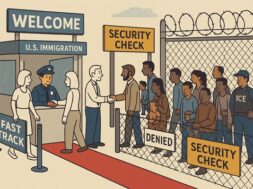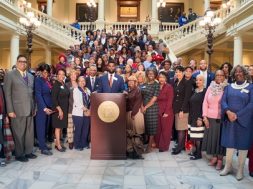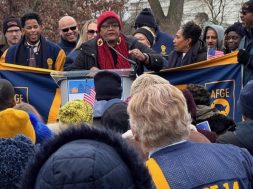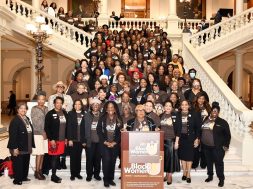
New England “99ers” Need Unemployment Help and Jobs
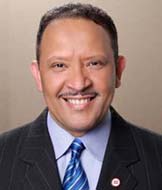
Darrell Davis is just one of hundreds of discouraged, long-term unemployed people we met during last week’s “Jobs Rebuild America” tour in New England. Our visit to Boston and Springfield, MA; Bridgeport, New Haven, Hartford, and Stamford, Conn; and Providence, RI put a human face on the unemployment crisis in urban America and confirmed the need for immediate targeted action to rescue those who have been most profoundly affected.
I’m extremely grateful to my host CEOs – Darnell Williams, of the Urban League of Eastern Massachusetts; Dennis Langley of the Urban League of Rhode Island, Adrienne W. Cochrane of the Urban league of Greater Hartford, Henry M. Thomas III of the Urban League of Springfield, and Valarie Schultz-Wilson of the Urban League of Southern Connecticut – not only for a successful tour but also for their hard work and dedication in the War on Unemployment.
Many may have assumed that New England, home to great universities like Yale, Brown and Harvard, would be immune to the kind of economic hardship more commonly associated with areas like Appalachia and the Mississippi Delta and cities like Newark and Detroit. But in Springfield, African American unemployment has skyrocketed to more than 25 percent. In Providence, Latino and African American men are twice as likely as white men to be unemployed and in Bridgeport, there is a large group of “99ers” — people who have been unemployed for more than 99 weeks, and have exhausted their extensions of unemployment benefits. Clearly, New England has not escaped the ravages of the great recession.
That is why education and training for 21st century jobs is the centerpiece of the National Urban League’s 12-point Jobs Rebuild America plan. And it is why for more than two years we have relentlessly urged Washington to pass a real jobs bill that puts 5 million teenagers to work, strengthens public-private partnerships to train and hire more people in growth industries, and does more to inspire and motivate young people and recent college graduates.
The voices of “no” in Washington say we can’t afford to make these critical job-creating investments. But many of the people who are now latter-day budget-cutters, never raised objections or threw the yellow flag when trillions of dollars were being spent by Congress to fund wars, bail out banks or support large tax cuts for Americans with high incomes.
In Springfield, nearly 1,500 job-seekers arrived at the Urban League job fair, where they met more than 40 employers looking for workers. At the Workplace, Inc. job training site in Bridgeport, we met a number of “99ers” who are in danger of losing health care and their homes. The Labor Department’s April jobs report revealed that the number of unemployed who have been out of work for more than 99 weeks increased by 21,000 to a record 1,920,000 or 14.5 percent of all unemployed. But instead of supporting Representative Barbara Lee’s H.R. 589, which would extend unemployment benefits another 14 weeks for those facing a final cut-off, House Ways and Means Committee Chairman Dave Camp has introduced legislation that would allow states to shift $31billion of 2011 federal unemployment funds to, in part, provide corporate tax relief.
This is an outrage. Our trip to New England made it clear: at a time when corporate profits are soaring, it is morally indefensible to give businesses more tax breaks while the long-term unemployed are left to fend for themselves.
We will return to New England July 27-30 for the “Jobs Rebuild America” National Urban League conference in Boston. To register for the conference visit: http://www.nul.org/conference/

